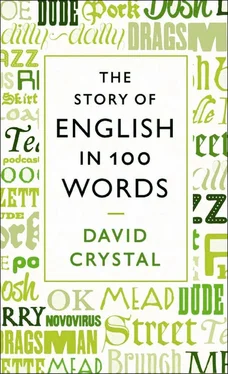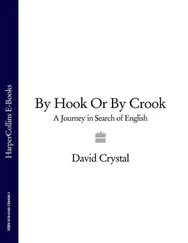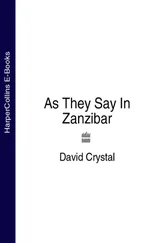which pretends to communicate, but really doesn’t. It is language which tries to make the bad seem good, the negative seem positive, or the unpleasant seem attractive, or at least tolerable. It is language which avoids or shifts responsibility…
The important point to stress is that this kind of language isn’t the result of lazy thinking. Rather, it’s the product of very clear thinking on someone’s part. Doublespeak has been carefully selected in order to mislead.
A factory reports that they have had a leak of biosolids from their plant. They mean ‘sewage’. An army reports a surgical strike on a town. They mean a ‘military attack’. One company says it is rightsizing . It means people are being sacked. Another says it is offering job flexibility . It means there are no permanent contracts. There is the hint in these cases that the new situation is a good thing. Bio- suggests life. Surgery suggests cure. Words like right and flexibility put a positive spin on a bad situation. Job seekers sounds better than unemployed , ethnic cleansing better than genocide .
It all depends on your point of view, of course. If an army is on your side, it intervenes in another country; if it isn’t, it invades . If an armed group is on your side, their members are freedom fighters ; if not, they’re terrorists . People can lapse into doublespeak for the best of intentions, believing they are really helping a cause. When a country is at war, few would doubt the importance of positive spin in maintaining national morale. When a company is worried about its share prices, it will do what it can to present itself in the best possible light.
But there comes a point when the public feels that the spin has gone too far, and several of the phrases highlighted by doublespeak campaigns — not only in the USA — have become so famous that they have lost their obscuring force. Everyone now knows what friendly fire means: you’ve killed your own men. And only the most hidebound of press officers would these days say collateral damage (for a raid in which bystanders are killed or injured) without embarrassment, because every journalist present would know exactly what was meant.
The Doublespeak Committee decided to give annual awards for the worst examples. In 2008 it gave the award to the phrase aspirational goal — as used, for instance, when talking about setting a deadline for withdrawing troops from Iraq or for reducing carbon emissions. The Committee observed:
Aspirations and goals are the same thing; and yet when the terms are combined, the effect is to undermine them both, producing a phrase that means, in effect, ‘a goal to which one does not aspire all that much ’.
In other words: nobody has done anything about this yet.
How to reduce doublespeak? One way is to praise linguistic honesty; and the Committee does give Orwell Awards for good practice. Satire also helps. I especially like the report of a chess match in which one of the players proudly reports that he came second.
 82. Doobry — useful nonsense (20th century)
82. Doobry — useful nonsense (20th century)
Or doobery , dooberry , doobrie , doobrey … It’s never obvious how to spell the invented forms we use to talk about an object whose name we don’t know. Fortunately it isn’t a problem, most of the time, because these nonsense words are usually used only when we speak. ‘Where’s the doobry?’ someone might say, looking for the gadget which controls the television.
Doobry is the latest in a series of doo- forms that appeared during the 20th century. It’s first recorded in British English in the 1970s. In earlier decades people used such forms as doodah , doofer , doodad , doings and dooshanks . Doodah seems to have been the first, recorded in 1928. Doofer came soon after, in the 1930s — probably derived from the phrase do for , as used in such sentences as that’ll do for now . Workmen used to describe half a cigarette as a doofer . It became popular in Australia, where it also appeared as doover and doovah . In American English, the favoured forms, from early in the century, were doohickey and doojigger , and both are still used. Doodad also developed a more specific meaning in the USA, referring to fancy ornaments or articles of dress. There might be all kinds of doodads on a Xmas tree, for instance.
Nonsense words are a hugely useful feature of speech. They help us out when we’re searching for a word and don’t want to stop ourselves in mid-flow. They’re a lifeline in cases where we don’t know what to call something, or have forgotten its name. And they’re available when we feel that something is not worth a precise mention or we want to be deliberately vague. Their importance is illustrated by the remarkable number of these words that have been coined over the centuries.
The oldest ones, recorded in writing since the 16th century, and likely to be much older in speech, are based on the word what . In their full form they appear as what do you call it/him/’em …, but they turn up in a wide range of contracted forms, such as whatdicall’um , whatchicalt and whatd’ecalt . Shakespeare uses one, when Touchstone addresses Jacques: ‘Good even, good Mr what ye cal’t’ ( As You Like It , III.iii.74). He’s avoiding the pronunciation of the name Jacques , which would have sounded like ‘jakes’ in Elizabethan English — and jakes was a slang word for a toilet. Today the commonest forms are whatchacallit and whatchamacallit (from ‘what-you-may-call-it’).
The curious forms giggombob , jiggembob and kickumbob all appear in the early 17th century — usually in plays — but seem to have fallen out of use a century later. They were probably overtaken by forms based on thing . Thingum and thingam are both recorded in the 17th century, especially in American English, and there was a reduplicated form too: thingum-thangum ( §56). Then, in the 18th century, when sensitivities about using unfashionable or inelegant words reached new heights, we find a raft of new creations: thingy, thingummy, thingamerry, thingamajig, thingamabob, thingummytite, thingumty, thingumtitoy .
Nonsense words go in and out of fashion. Does anyone still use jigamaree or whigmaleerie nowadays? And what has happened to oojah ? An issue of the Washington Post in July 1917 refers to new British army slang, and mentions oojah as coming from the East — from Arabic or Persian, perhaps. It was very common in forces slang during the Second World War, when it developed into such forms as oojamaflop . My Uncle Bill, ex-RAF, used that one all the time. But I don’t think I’ve ever used it myself, except in articles like this one.
 83. Blurb — a moment of arrival (20th century)
83. Blurb — a moment of arrival (20th century)
Is it ever possible to say exactly when a word was invented? Yes, if someone keeps a record ( §65, 66). But more often we find new words known by the date the public got to know about them.
In 1906, the Huebsch company published a book by the American humorist Gelett Burgess, which sold very well. The next year, at a publishing trade association dinner, free copies were given out of a limited edition, printed — as was the association’s custom — in a special dust jacket. Burgess had devised a jacket which showed a charming lady, Miss Belinda Blurb, ‘in the act of blurbing’ — shouting out the title of the book and the name of its author. ‘YES, this is a “BLURB”!’ said the headline. The accompanying text was full of unbelievable praise: ‘When you’ve READ this masterpiece, you’ll know what a BOOK is’.
Читать дальше

 82. Doobry — useful nonsense (20th century)
82. Doobry — useful nonsense (20th century) 83. Blurb — a moment of arrival (20th century)
83. Blurb — a moment of arrival (20th century)










